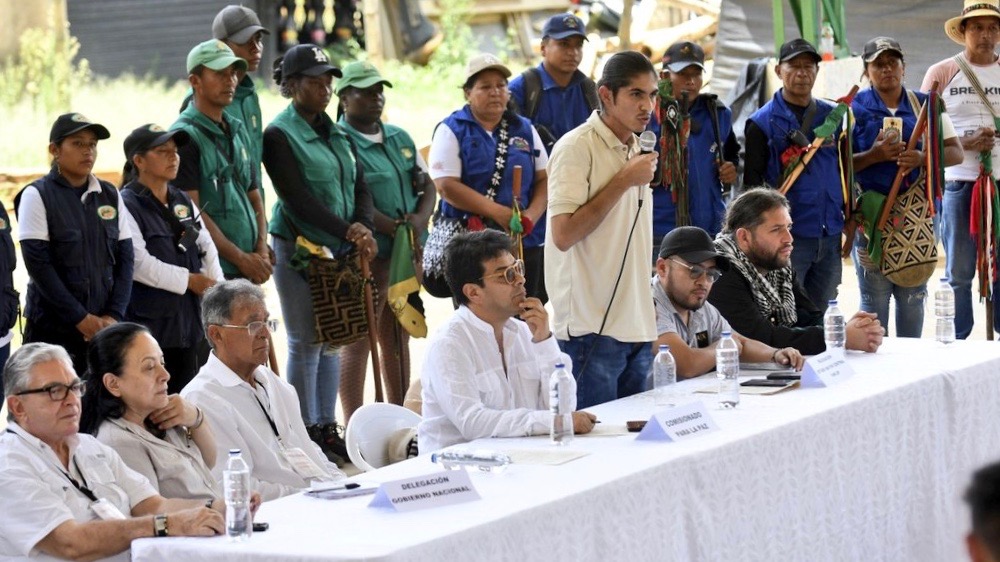On Tuesday, September 19, the Colombian government and the Estado Mayor Central (EMC), a dissident group of the demobilized Revolutionary Armed Forces of Colombia – People’s Army (FARC-EP) guerrilla group, signed an agreement for a 10-month bilateral ceasefire. It is the longest ceasefire achieved by the Gustavo Petro government with an armed group so far.
The truce will be applicable nationwide and will begin on October 8. On the same day, delegations of both the parties will formally initiate peace negotiations in the city of Tibú in the Norte de Santander department. In addition, the parties will begin complying with an agreement to respect the civilian population.
The rounds of talks will be held on an itinerant basis in different departments where the EMC operates. The negotiation process will be attended and supported by the representatives of the United Nations, the European Union, the OAS Mission to Support the Peace Process in Colombia (MAPP-OAS), the Episcopal Conference, and the World Council of Churches, among others.
The announcement of the ceasefire was made jointly at a press conference from the town of Suárez in the Cauca department, where the delegations had been holding meetings since September 17 to reach these agreements.
The EMC group, led by Iván Mordisco, has around 3,000 combatants. It was formed by former members of the FARC-EP after the organization signed the 2016 Havana Peace Agreement which had paved the way for FARC rebels to lay down arms and form a political party. The members of EMC did not sign the peace agreements and formed a new group to remain in armed struggle.
Talks between the government and the EMC are part of President Gustavo Petro’s “total peace” policy to end the over six-decade-long internal armed conflict in the country that has killed around 450,000 people and displaced over 8 million.
The representative of the Petro government first met with representatives of the EMC in September 2022 to assess the possibility of initiating a peace dialogue.
On December 31, President Petro reported that his government had reached an agreement on a six-month temporary bilateral truce with the EMC, along with other irregular armed groups.
In March 2023, the Attorney General of the Nation, Francisco Barbosa Delgado, suspended arrest warrants against 19 members of the rebel group to facilitate the beginning of peace negotiations.
In May, the Petro government partially suspended the bilateral ceasefire with the EMC in four departments following the murder of four Indigenous minors who had been forcibly recruited by the group and were shot dead when they tried to escape.
In recent weeks, the EMC has been strongly criticized for the increase in offensive actions and violent confrontations with the National Liberation Army (ELN) rebels.
Nevertheless, despite the setbacks, the Petro government and the EMC have reiterated their commitment to the process for achieving peace in the country.
The Petro government is also engaged in peace talks with the ELN and the two sides have agreed on a bilateral ceasefire.





